
The 1951 Asian Games, officially known as the First Asian Games, was a multi-sport event celebrated in New Delhi, India from 4 to 11 March 1951. The Games received names like First Asiad, 1951 Asiad, and New Dehli 1951. A total of 489 athletes representing 11 Asian National Olympic Committees (NOCs) participated in 57 events from eight sports and discipline. The Games was the successor of the Far Eastern Games and the revival of the Western Asiatic Games. The 1951 Asiad were originally scheduled to be held in 1950, but postponed until 1951 due to delays in preparations. On 13 February 1949, the Asian Games Federation was formally established in Delhi, with Delhi unanimously announced as the first host city of the Asian Games.
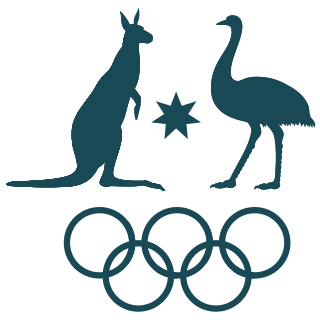
The Australian Olympic Committee (AOC) is the National Olympic Committee responsible for developing, promoting, and protecting the Olympic Movement in Australia. The AOC has the exclusive responsibility for the representation of Australia at the Olympic Games, the Youth Olympic Games and at Regional Games patronized by the International Olympic Committee (IOC). All National Olympic Committees are constituents of the International Olympic Committee.

The Olympic Council of Asia (OCA) is a governing body of sports in Asia, currently with 45 member National Olympic Committees. Talal Fahad Al-Ahmad Al-Sabah was elected as President of the OCA on 8 July 2023. However, on 30 July 2023, the International Olympic Committee asked Randhir Singh, who was the acting president at the time, to continue as the Acting President of the OCA while the IOC investigated the OCA presidential election of 2023. On 13 October 2023, the IOC ethics committee asked the OCA to annul its 2023 elections due to Talal’s candidacy not fulfilling the eligibility conditions defined by the OCA Constitution and election interference by his brother Ahmad Al-Fahad Al-Sabah.

The Sports and Olympic Committee of Macau, China, is the National Olympic Committee of Macau and is responsible for organizing the region's participation in international sporting events. It is officially recognised as a National Olympic Committee by regional Olympic Committees, but not by the International Olympic Committee.

The Philippine Paralympic Committee (PPC), formerly known as Philippine Sports Association for the Differently Abled—National Paralympic Committee of the Philippines, is the national sports association for physically impaired athletes, tasked to spearhead developing sport competency for Filipino persons with disabilities. It is the Philippine National Paralympic Committee which is duly recognized by the International Paralympic Committee

Nepal Olympic Committee is responsible for selecting athletes to represent Nepal at the Olympic Games, Asian Games and other international sports competitions, and managing Nepalese teams at these events.

India is a member of the South Asian Zone of the Olympic Council of Asia, and has participated in the Asian Games ever since their inception in 1951. The Indian Olympic Association was established in 1927 and was recognised by the International Olympic Committee in the same year. It is the country's National Olympic Committee.

Myanmar is a member of the Southeast Asian Zone of the Olympic Council of Asia (OCA), and has participated in the Asian Games since the inception of the Games in 1951. The Myanmar Olympic Committee, established in 1947 and recognised in the same year by the International Olympic Committee, is the National Olympic Committee for Myanmar.

Pakistan is a member of the South Asian Zone of the Olympic Council of Asia (OCA), has participated in the Asian Games since their second edition in 1954. The Pakistan Olympic Association, established in 1948, and recognised in the same year by the International Olympic Committee, is the National Olympic Committee for Pakistan.

The Philippines is a member of the South East Asian Zone of the Olympic Council of Asia (OCA), and has participated in the Asian Games since their inception in 1951. The Philippine Olympic Committee, established in 1911, and recognized in 1929 by the International Olympic Committee, is the National Olympic Committee for Philippines.
Tan Sri Dato' Sri (Dr.) Mohamad Norza Zakaria is a prominent Malaysian sports administrator, chartered accountant, and corporate leader. Recognized for his influential roles in sports and corporate governance, Norza has been a driving force in transforming the sports landscape in Malaysia. Currently, he serves as the President of the Olympic Council of Malaysia (OCM), President of the Commonwealth Games Association of Malaysia, and Vice President of the Olympic Council of Asia (OCA) for Southeast Asia. His contributions have earned him numerous accolades, and he continues to be a leading figure in both Malaysia’s sporting and business sectors. A Fellow Certified Practicing Accountant (FCPA) with CPA Australia and a Chartered Accountant (CA) with the Malaysian Institute of Accountants (MIA), Norza brings a wealth of financial expertise to his various roles, underlining his multidimensional influence across industries.

The Philippine National Shooting Association (PNSA) is the National Sports Association (NSA) governing shooting sports in the Philippines, covering both Olympic discipline shooting sports and non-Olympic shooting events like the bench rest or practical pistol. PNSA is the Philippine shooting sport NSA recognized by and a regular member of the Philippine Olympic Committee (POC), funded by the Philippine Sports Commission (PSC).
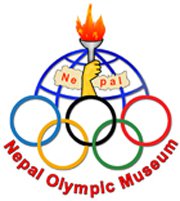
The sole sports Museum of Nepal, Nepal Olympic Museum, envisioned by its founder/president Chhitij Arun Shrestha, has been in existence since 1999 inside the premise of the National Sports Council, during the 8th South Asian Games Kathmandu. Affiliated to National Sports Council and Nepal Olympic Committee, and with the primary objective of Historical Conservation for Sports Development and contributing to the Olympic Movement by preserving historic objects and items that were once a part of Nepalese Sports, the Museum, is a national asset of every Nepalese sport enthusiast and purely a sports organization. It is evident that since its existence, the museum despite it ups and downs have been involved in variety of activities in the service of Nepalese sports.

Sports in Nepal comprise both traditional Nepalese and modern international games. Even though there is no exact data, Football, cricket and volleyball are most popular sports in Nepal. On 23 May 2017, volleyball was also declared as national sport of Nepal. Before 2017, traditional games like dandi biyo and kabbadi were considered as the de facto national games.
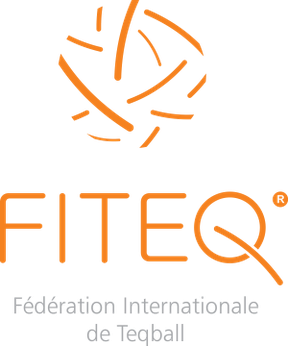
The International Teqball Federation is the governing body for the sport of teqball and para teqball. FITEQ is responsible for the organisation of teqball's major international tournaments, notably the Teqball World Championships.
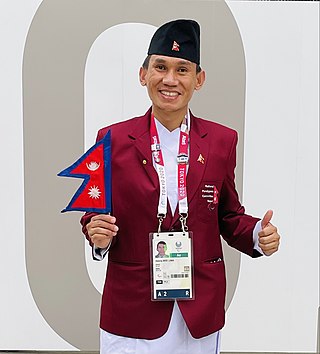
Kabiraj Negi Lama is a notable figure in Nepalese Para Taekwondo and a successful coach who has made significant contributions to the sport in Nepal. Under his coaching, Nepal has won 11 international official medals, including 3 gold, 2 silver, and 6 bronze. He is a former Nepalese Taekwondo player and the coach of the Nepal National Para Taekwondo Team for both the Tokyo 2020 Summer Paralympics and Paris 2024 Summer Paralympics. He has participated in various taekwondo competitions. He is also the grandson of former minister Tilak Bahadur Negi Lama.
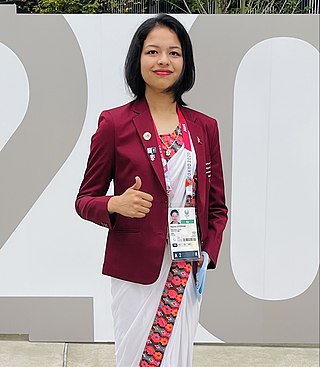
Palesha Goverdhan is a Nepali parataekwondo practitioner. In 2021, she competed at the 2020 Summer Paralympics in the 58 kg category. Three years later, Goverdhan competed at the 2024 Summer Paralympics and won a bronze medal, becoming the first Nepalese athlete to win a medal at the Paralympics.

The Nepal Taekwondo Association (NTA) is the governing body for Taekwondo and Para Taekwondo in Nepal. NTA organizes national and international competitions, enabling Nepali taekwondo athletes to participate in international events. Additionally, the Nepal Taekwondo Association promotes the development and expansion of Taekwondo in schools and dojangs across districts within Nepal's provinces. The current President of NTA is Prakash Shumsher Rana, and its headquarter is located in the International Sports Complex in Lalitpur, Nepal.


















